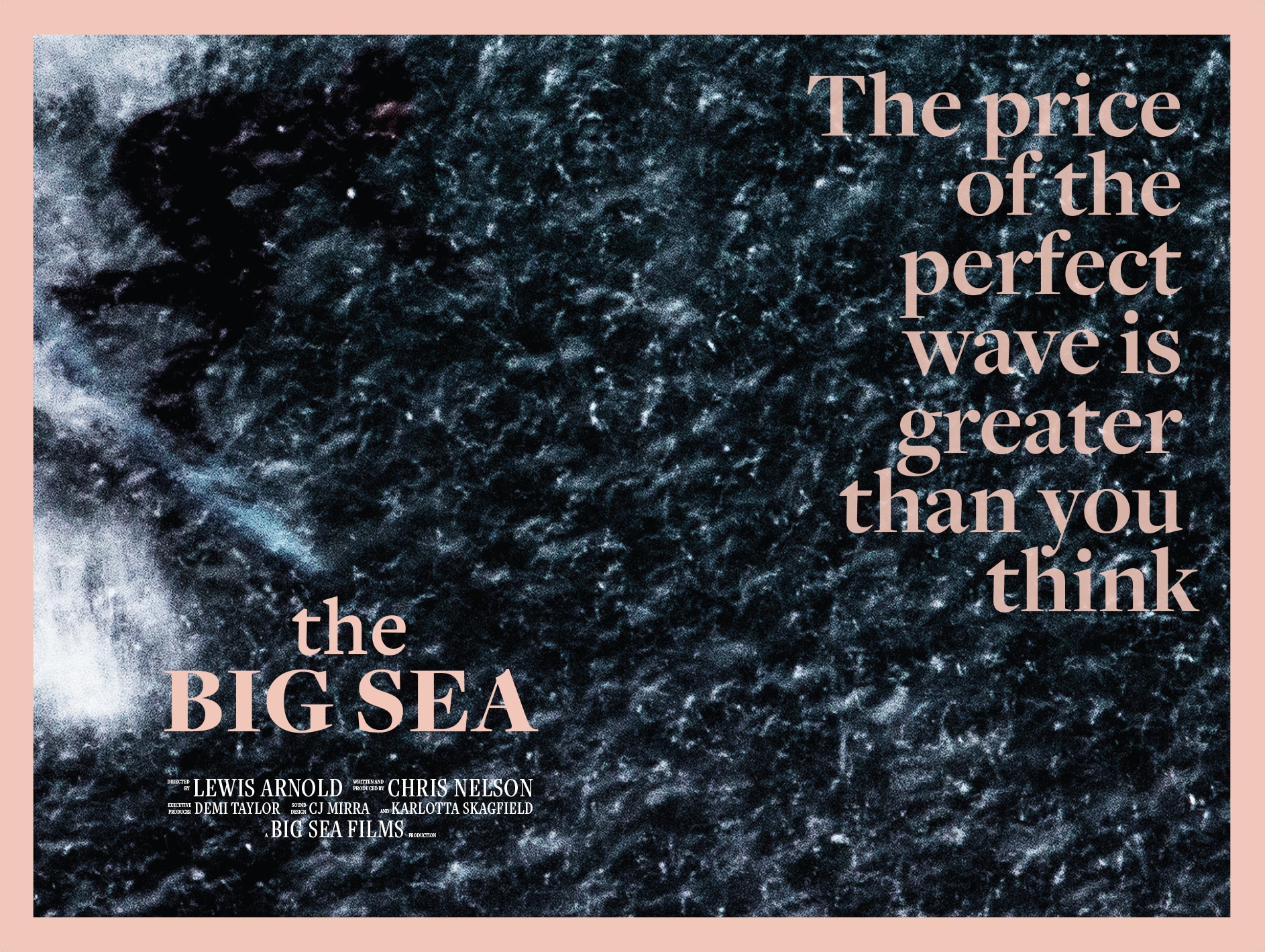The price of the perfect wave is greater than you think.
Is the opening title of the thebigsea.org.
Followed by the alarming paragraph that states that the $10 billion global surf industry, epitomized by the allure of free spirits, pristine waters, and a profound connection with nature, is more popular than ever. And that surfing has positioned itself as a defender of the environment.
And yet, there is a hidden dark side to this sport… and it’s costing lives.
A journey into the heart of surfing’s dark secret
Lewis Arnold en Chris Nelson, a seasoned filmmaker and photographer from the Northeast of England, has delved deep into the surfing culture of northern Europe for over three decades. As the director of “The Big Sea,” Arnold has encountered the surf’s icy embrace clad in neoprene, a material he once saw as a boon for surfers worldwide.
But behind the comfort provided by the wetsuits he’s owned lies a distressing truth that has changed his perspective forever.
The neoprene conundrum
Neoprene, or chloroprene rubber, is a common component of wetsuits. This substance is chiefly manufactured by Denka, a chemical company with a significant plant in an area known as Cancer Alley, Louisiana.
Cancer Alley, refers to a stretch along the Mississippi River in Louisiana where locals have uncommonly high cancer rates.
See also this NY Times article.
This region, primarily inhabited by a black community living below the poverty line, faces a cancer risk 50 times the national average—a dire statistic directly linked to the chloroprene emissions from Denka’s facilities.
The revelation of his indirect contribution to this catastrophe spurred the filmmakers into action, questioning the ethics behind the surf industry’s material choices.
Exposing the surf industry’s overlooked impact
Chris Nelson and Arnold produced “The Big Sea,” an independent documentary that seeks to lay bare the link between the surf industry and the environmental injustices in Cancer Alley.
In the film you’ll be taken to Cancer Alley in Louisiana to hear from local activists who have spent decades fighting for the health and safety of their community.
Their investigation reveals a troubling oversight in the industry’s marketing of itself as “ethical” and “sustainable” while it continues to rely on harmful materials like neoprene.
Summer of 2024
The documentary will be on screen in the summer of 2024.
The Big Sea trailer:
The story surf brands don’t want told
Arnold and Nelson’s journey into the core of the issue showcases a landscape marred by historical and ongoing injustices. The site of the Denka plant itself is steeped in a painful history, sitting on the grounds of a former slave plantation.
The majority of those affected by the toxic emissions are minorities, underscoring a narrative of neglect and exploitation that the surf industry has long ignored.
A call to action: abandon neoprene
The filmmakers have engaged with environmentalists, industry insiders, and the local community to gather a comprehensive view of the implications of neoprene production. Their findings paint a stark picture of a community where no household has been left untouched by cancer. Despite some media coverage, little has changed for the residents of Cancer Alley, prompting a call for the surf community to lead the charge in abandoning chloroprene rubber.
Supporting “The Big Sea” needed
Arnold and Nelson have self-funded their project but now look to the global surf community for support to complete the documentary. They ran a Kickstarter campaign to finance the final stages of production, including sound design and legal costs. The campaign also offers an opportunity to celebrate companies that have pivoted from neoprene to more sustainable alternatives like natural rubber.
Check also How can I Help?
Broader movement towards sustainability
“The Big Sea” aims not only to inform but to inspire action, encouraging the surf industry and its enthusiasts to reconsider their environmental footprint. By spotlighting the potential to shift away from toxic materials, Arnold hopes to catalyze a broader movement towards sustainability in sports and beyond.
As the project gains momentum, the support of the global community will be crucial in bringing this vital issue to the forefront, helping to heal the wounds inflicted on the communities of Cancer Alley and setting a precedent for future generations.











